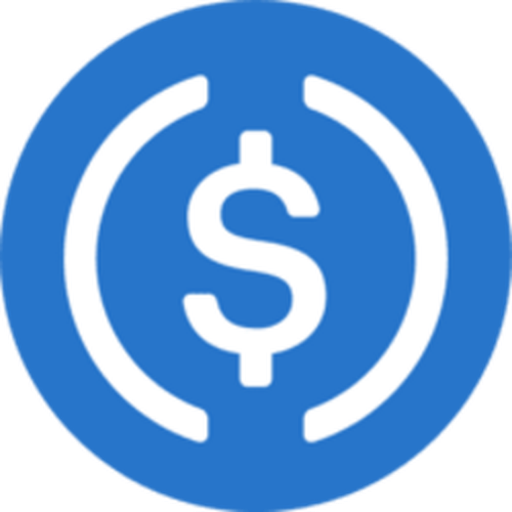USDC vs TrueUSD – Price, Market Cap & Performance Compared
Which coin performs better – USDC or TrueUSD?
We compare the current price (0.99971 $ vs 0.99926 $), market cap (74 153 765 385 vs 494 103 440) and all-time high (1.17 vs 1.62).
Find out which one stands out right now!
USDC is currently trading at 0.99971 $, while TrueUSD stands at 0.99926 $. These cryptocurrencies differ not only in price but also in market presence.
The market cap of USDC is around 74 153 765 385, and TrueUSD has about 494 103 440. Their respective all-time highs are 1.17 for USDC and 1.62 for TrueUSD.
Daily trading volume and the 24h price change (-0.00009 % vs 0.05428 %) also offer key insights.
Compare all metrics now and see which coin fits your investment strategy best!
USDC
USD Coin (USDC) is a stablecoin that is pegged to the US dollar, offering a consistent value and reducing the volatility often associated with cryptocurrencies. It provides a crucial bridge between traditional financial systems and digital currency markets, facilitating easy and secure transactions. USDC's foundation on blockchain technology ensures transparency and enhances trust among users and institutions.
more informationTrueUSD
TrueUSD is a stablecoin that aims to provide the cryptocurrency market with a transparent and dependable option for trading and transactions. It is fully backed by reserves of fiat currency, which are regularly verified to ensure the stability and trustworthiness of the coin. TrueUSD offers users the benefits of blockchain technology while minimizing the volatility commonly associated with other cryptocurrencies.
more information

|

|
|
|
|
General Information |
|
|---|---|
|
Title
USDC
|
Title
TrueUSD
|
|
Symbol
usdc
|
Symbol
tusd
|
|
Whitepaper
-
|
Whitepaper
-
|
|
Website
|
Website
|
|
Community
-
|
Community
-
|
|
Last Updated
2025-09-24 23:29
|
Last Updated
2025-09-24 23:29
|
Price Data |
|
|---|---|
|
Current Price $
0.99971 $
|
Current Price $
0.99926 $
|
|
High 24h
0.99972 $
|
High 24h
1 $
|
|
Low 24h
0.99960 $
|
Low 24h
0.99812 $
|
|
Price Change 24h
0.00000 $
|
Price Change 24h
0.00054 $
|
|
Price Change % 24h
-0.00009 %
|
Price Change % 24h
0.05428 %
|
Market Data |
|
|---|---|
|
Market Cap
74 153 765 385
|
Market Cap
494 103 440
|
|
Total Volume
10 559 655 699
|
Total Volume
14 972 214
|
|
Market Cap Change 24h
159 815 467
|
Market Cap Change 24h
61 753
|
|
Market Cap Change % 24h
0.21598 %
|
Market Cap Change % 24h
0.0125 %
|
|
Return on Investment (ROI)
-
|
Return on Investment (ROI)
-
|
Supply and Availability |
|
|---|---|
|
Circulating Supply
74 175 659 818
|
Circulating Supply
494 515 083
|
|
Total Supply
74 172 355 958
|
Total Supply
494 515 083
|
|
Max Supply
-
|
Max Supply
-
|
Historical Data |
|
|---|---|
|
All Time High (ATH)
1.17
|
All Time High (ATH)
1.62
|
|
ATH Change %
-14.75232 %
|
ATH Change %
-38.25032 %
|
|
ATH Date
2019-05-08 00:40
|
ATH Date
2018-08-26 20:41
|
|
All Time Low (ATL)
0.87765
|
All Time Low (ATL)
0.88355
|
|
ATL Change %
13.90744 %
|
ATL Change %
13.11489 %
|
|
ATL Date
2023-03-11 08:02
|
ATL Date
2020-03-12 10:47
|
USDC
Understanding USDC: A Stablecoin in the Volatile Crypto World
USDC, or USD Coin, is a prominent stablecoin in the cryptocurrency market. Issued by Circle and backed by fully reserved assets, USDC is designed to maintain a 1:1 value ratio with the US Dollar, making it a reliable digital dollar. The stablecoin ecosystem plays a crucial role in the broader cryptocurrency industry by providing a less volatile alternative to traditional cryptocurrencies like Bitcoin and Ethereum.
The Evolution of USDC
Launched in 2018, USDC was developed as part of a collaboration between Circle and Coinbase, two major forces in the cryptocurrency space. Since its inception, USDC has seen significant growth and adoption, becoming one of the leading stablecoins alongside Tether (USDT) and Binance USD (BUSD). While its all-time high reached $1.17 in May 2019, this was more of an anomalous spike that reinforced the need for rigorous controls to maintain stability around its intended $1 peg.
Pros of Using USDC
One of the primary advantages of USDC is its transparency and regulatory compliance. Circle, the company behind USDC, undergoes regular audits and publishes monthly attestations of its reserves, ensuring users that each USDC token is truly backed by a dollar or dollar-equivalent asset held in reserve. This transparency fosters trust and helps mitigate the volatility that plagues much of the crypto market.
Furthermore, USDC serves as a bridge between traditional finance and the blockchain world. It's used widely in Defi applications, allowing decentralized lending, borrowing, and trading while maintaining value stability. Additionally, USDC's integration into various wallets and exchanges worldwide adds to its utility and liquidity.
Cons of USDC
Despite its advantages, USDC is not without its drawbacks. One of the critical concerns involves regulatory risks, as stricter regulations on stablecoins could impact its future operations. Also, as a centralized stablecoin, USDC is subject to censorship concerns, where accounts can be frozen, diverging from the decentralized ethos that underlies most cryptocurrencies.
Another drawback is that, unlike decentralized alternatives, USDC requires a level of trust in the issuer, Circle. Any potential mismanagement or economic instability affecting Circle could, in theory, impact its ability to maintain the 1:1 peg, a risk inherent to any centralized stablecoin.
Past Performance and Market Impact
USDC has generally maintained its peg effectively, with minor fluctuations typically remaining within a tight range around $1. Its stability has been pivotal during periods of crypto market volatility, where it serves as a safe haven for investors looking to escape market downturns without exiting the crypto ecosystem.
In terms of market cap, USDC has experienced exponential growth, driven by increased adoption in the decentralized finance (Defi) space and demand for stable trading pairs. Despite being eclipsed by Tether (USDT) in terms of market share, USDC's reputation for transparency gives it a competitive edge.
Future Outlook for USDC
Looking ahead, USDC's future appears promising but laden with challenges. The growing scrutiny from regulators worldwide could result in regulatory changes impacting its operations. However, Circle's proactive approach to compliance and regulation may shield USDC from adverse outcomes.
The stablecoin's role in facilitating seamless transactions and enabling innovative financial products in the Defi space will likely continue to drive its utility and adoption. Moreover, as traditional financial institutions begin to explore blockchain technology, USDC could play a critical role in bridging the two worlds.
In summary, USDC's stability, transparency, and integration with both traditional and decentralized finance systems position it as a key player in the ongoing evolution of digital finance. However, navigating regulatory landscapes and maintaining trust will be crucial for its sustained success.
TrueUSD
Understanding TrueUSD: Stability Amidst Volatility
In the ever-fluctuating world of cryptocurrencies, TrueUSD (TUSD) stands out as a stablecoin, meticulously designed to maintain parity with the US dollar. Since its inception, TrueUSD has been influential in offering stability and reliability within the crypto market. Unlike other digital assets, TUSD's primary goal is to minimize volatility, making it an appealing option for both investors and traders looking to hedge against market swings.
The Pros and Cons of TrueUSD
One of the primary advantages of TrueUSD is its commitment to transparency and regulatory compliance. Each TUSD is backed by an equivalent amount of USD, stored in escrow accounts with multiple trusted banking partners. This mechanism ensures that the token remains fully collateralized, providing confidence to investors about its legitimacy and stability.
Furthermore, TrueUSD offers liquidity and ease of use, as it's supported by multiple exchanges and can be easily integrated into various DeFi platforms. This flexibility enhances its utility across the cryptocurrency ecosystem.
However, there are some drawbacks to consider. While TrueUSD strives for transparency, it is still subject to regulatory changes and potential legal scrutiny. Another concern involves the centralization associated with its reserve holdings, which could pose risks if the custodial accounts were ever compromised.
A Look Back at TrueUSD's Development
Introduced in early 2018, TrueUSD quickly gained traction as a reputable stablecoin. Despite the inherent stability built into its structure, the token experienced an all-time high of $1.62 in August 2018. This spike might have been influenced by market sentiment and demand-supply dynamics at that time, although such extreme fluctuations are rare for stablecoins.
The all-time low of $0.88355 in March 2020 was a tumultuous period for global markets, including cryptocurrencies, likely reflecting a momentary lapse in the arbitrage mechanisms that typically maintain its peg to the dollar.
Current Market Environment
As of the latest updates, TrueUSD trades slightly below $1, which aligns closely with its intended peg. With a market cap of approximately $494 million, TUSD continues to demonstrate a strong presence in the stablecoin sector. The 24-hour trading volume of over $21 million illustrates its substantial liquidity and active usage across exchanges.
Future Prospects for TrueUSD
Looking ahead, the future of TrueUSD appears stable yet competitive. As the demand for reliable and transparent stablecoins increases, TrueUSD's adherence to audits and regulatory compliance could secure its position in the market. The growth and adoption of decentralized finance (DeFi) platforms may further boost its utility and integration.
However, TrueUSD will need to navigate the evolving regulatory landscape carefully to maintain its reputation and operational viability. The interplay of compliance, innovation, and user trust will significantly influence its trajectory in the coming years.
In conclusion, TrueUSD remains a fundamental player in the stablecoin ecosystem. As investors continue to seek out reliable stable assets amidst market volatility, TrueUSD's blend of security, transparency, and usability positions it well for sustained relevance and potential growth.

